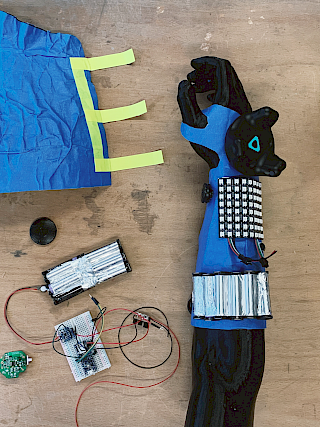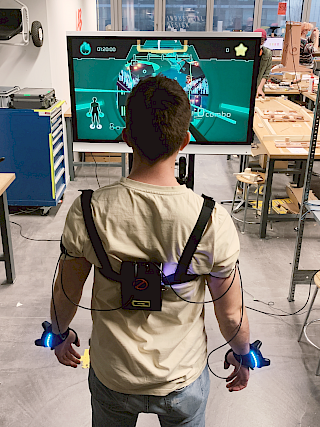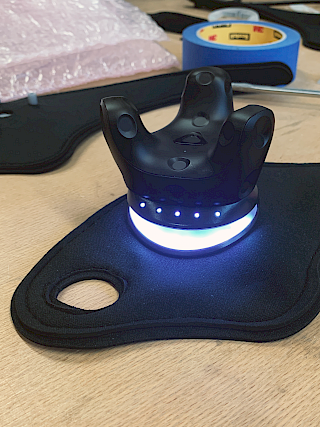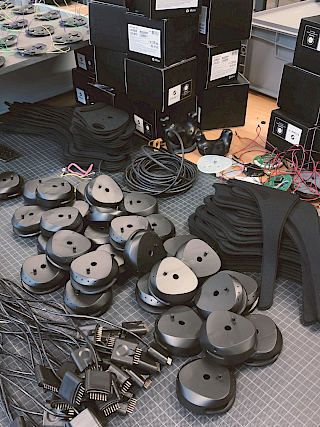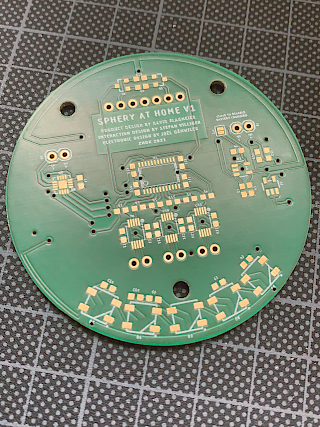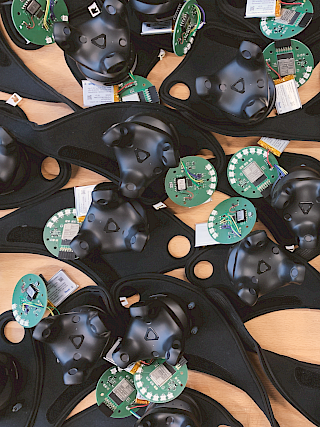Exergame
Evaluating the effects of game-based training on cardio-metabolic and cerebrovascular health
This project aims to combine the expertise of an interdisciplinary team to develop and evaluate a home-based exergame designed to improve markers of cardio-metabolic and cognitive health while effectively removing barriers to exercise in individuals at elevated risk of type 2 diabetes.
The physically inactive lifestyle of industrialised nations combined with the overconsumption of energy-dense food has led to a global health emergency with >650 million adults classified as obese and ~400 million cases of type 2 diabetes (T2D) worldwide. Physical inactivity is one of the leading global risks for mortality due to its association with cardio-metabolic pathologies such as cardiovascular disease and T2D. Cognitive dysfunction is an important comorbidity of diabetes that affects well-being and diabetes management. Despite overwhelming evidence that an inactive lifestyle leads to chronic disease and premature death, many fail to meet activity guidelines. Therefore, novel strategies are urgently needed to combat the rising rates of metabolic disease and cognitive decline in our aging population. Inspired by current trends in the fitness market, Sphery Ltd. developed an immersive and motivating fitness exergame, the “ExerCube”. The ExerCube allows a full-body workout that concurrently challenges physical and cognitive functions and adapts to the fitness and skill level of the individual. Previous research has shown that the ExerCube is an effective training method that is more enjoyable than conventional exercise training. The development of a home-based version of the ExerCube has the potential to make this system available to more individuals, and reduce major barriers to exercise, providing an attractive means to improve cardio-metabolic health of the population. Innovative home-based exergames are particularly in demand given the increase in the number of people wanting to exercise at home. Here, we combine the expertise of an interdisciplinary team of industrial designers, game researchers, game designers, exercise physiologists and metabolic researchers to further develop and evaluate a home-based version of the ExerCube that is designed to improve cardio-metabolic and cognitive health while effectively removing barriers to exercise in individuals at elevated risk of T2D.
Project lead:
Nicole Kind, Anna Lisa Martin-Niedecken (Sphery AG)Project team:
David Flagmeier, Roman Jurt, Stefan VilligerProject partner:
Sphery AGFinancing:
Innosuisse – Schweizerische Agentur für InnovationsförderungPublications:
Schättin, Alexandra / Pickles, Jordan / Flagmeier, David / Schärer, Benjamin / Riederer, Yanick / Niedecken, Stephan / Villiger, Stefan / Jurt, Roman / Kind, Nicole / Scott, Sam / Stettler, Christoph / Martin-Niedecken, Anna Lisa (2022): «Development of a Novel Home-Based Exergame With On-Body Feedback: Usability Study». JMIR Serious Games. 10, 4. Online unter: https://doi.org/10.2196/38703.Pickles, Jordan / Schättin, Alexandra / Flagmeier, David / Schärer, Benjamin / Riederer, Yanick / Niedecken, Stephan / Villiger, Stefan / Jurt, Roman / Kind, Nicole / Scott, Sam / Stettler, Christoph & Martin-Niedecken, Anna Lisa (2022): «Exergaming mit „On-Body“ Feedbacksystem für den Heimgebrauch». Proceedings dvs Hochschultag 2022.
Martin-Niedecken, Anna Lisa (2022): «Exergaming mit „On-Body“ Feedbacksystem für den Heimgebrauch». 25. Sportwissenschaftlicher Hochschultag der Deutschen Vereinigung für Sportwissenschaft (dvs). 29.03.2022–31.03.2022. Kiel. Online unter: https://www.dvs2022.de/.
Duration:
01.09.2020 – 30.09.2022

